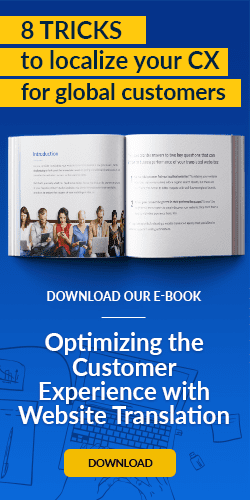Don't use a traditional translation agency to localize your online marketing channels. Those companies don't understand the unique demands of website translation, and other digital-first concerns such as:
- Mobile
- Online multichannel
- SEO
Read on to see how these agencies can’t deliver, particularly in digital-first channels.
Why Traditional Agencies Fall Short
Your longtime translation agency probably does a fine job of localising your offline marketing content, such as brochures and documentation. But online translations require a fluency in technologies, workflows and digital-first expertise that are all beyond most legacy agencies' grasp.
Legacy agencies don’t understand the unique demands of website translation, or digital-first channels.
Translating Your Mobile Content
In many emerging markets, mobile devices have become the primary way customers access the web. Nearly 90% of the population in developed countries now use smartphones too, according to Pew Research.
Are you localising your mobile experiences-such as responsive sites, mobile sites or apps-for global customers? Traditional translation agencies shift needless risk and effort on their customers in this digital-first channel.
Mobile-device adoption continues to skyrocket worldwide. You must localize your mobile experience for global customers.
These agencies often require customers to be heavily involved in a complicated, error-prone translation workflow to localize their websites. This inefficient, manual workload can be doubled, if you're localising a mobile website, too:
- Identify new or updated content for translation
- Manually extract and compile it for translation
- Inject the translated content into your translated mobile site and website instances
- QA the translated sites to ensure translations display properly and don’t “break” templates
- If breakage occurs, identify the translations causing the disruption and iterate the copy until the problem is eliminated
Translating Your Digital Multichannel Content
If you wish to become truly successful in global digital markets, your translation needs extend well beyond your localised website to:
- Social media posts
- Blog posts
- Pay-per-click (PPC) adverts
- Email newsletters
- PDFs, videos and more
Localising this marketing content is challenging for legacy agencies. It's effectively impossible to do it at the speed you need, particularly as you react to in-market trends, online memes and timely headlines.
These translation delays can lead to issues of in-market discoverability, or even relevancy.
Digital marketing requires fast translation of multichannel content. Often, legacy agencies can't keep up.
In contrast, great digital-first agencies—technology companies that specialize in translating online and digital content of all kinds—provide you with tools to access your translations at any time for multichannel use.
Their APIs and user interfaces deliver previously-translated content to you instantly, and at no additional cost to you.
Using Global SEO Best Practices
Unlike traditional translation agencies, digital-first agencies use technologies that can detect all possible translatable content on a website, and localize it to maximise discovery via organic search.
This content includes more than what's visible on your website. It also includes those SEO-rich "under the bonnet" elements, including:
- Page titles
- Metadata and structured data
- Alt tags and more
This invisible content, and on-site text, can be optimised with in-language keywords.
Legacy agencies really struggle with this. They're keen to deliver translations that are linguistically accurate, but rarely account for digital-first channels and how customers use them.
Your global websites and digital marketing channels won’t be successful unless they feature keywords that customers are actually using when they search online for your products.
It’s hard for traditional agencies to adapt to the unique needs of digital-first translations and international SEO.
These make a big difference in organic and paid search traffic. Advert banners and PPC campaigns rely on them. Your translation agency should conduct keyword research within regional search engines, and craft translations with the highest SEO value.
Most traditional agencies don’t do this, or can’t.
Conclusion
It can be a major challenge to question the effectiveness of your current translation agency-especially if you've been partners for many years. But website translation requires a different kind of agency fluent in online technologies, efficient tech-driven workflows, and in-market user behavior.
Be sure your agency is equipped to handle the unique demands of your "always on" online presence. And if it doesn't, consider contacting one that can. Your global success depends on it.
Last updated on October 12, 2017
